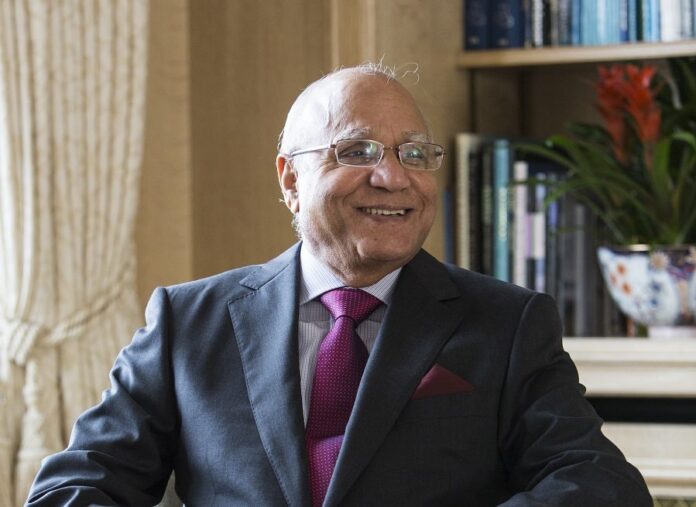LONDON: Pakistani-origin British billionaire and founder of Bestway Group Sir Anwar Pervez revealed he had a particular meeting with an influential personality in Pakistan to voice his grievances about being unfairly targeted by the former chief justice.
“In Pakistan if someone’s stomach is hurting, there is only one doctor to go to. I did the same, but nothing really came of it. I was told that my message would be conveyed but the case is still pending in court,” said the billionaire about his meeting with the influential personality in an interview with Dawn.
Sir Anwar says he assumed for a long time that his complaints weren’t forwarded to the judge but upon meeting him in person, the billionaire got the notion from Saqib Nisar that he had heard the complaints. Sir Anwar says he still didn’t get any relief from the court.
Sir Anwar also said he gets nightmares about former Chief Justice of Pakistan (CJP) Mian Saqib Nisar and the suo motu notices taken against his businesses in Pakistan.
His company Bestway Cement was included in the widely reported 2018 Katas Raj case which hinged on the improper use of groundwater by cement factories. Through his characteristic harsh observations, Justice Nisar had criticised Bestway in particular. Eventually, the case was closed when the factories were ordered to arrange their own water supply.
Another reason why the former CJP haunts the billionaire’s dreams is probably because of the cases against banks, which include United Bank Limited, of which Bestway Group is a majority owner.
“He [Saqib Nisar] has publicly apologised to me since then. But the mess that he put on us has caused huge losses. We were targeted and it was unfair,” says Sir Anwar.
He said that suo motu notices, granted to Supreme Court justices under Article 184 (3), should be used sparingly in Pakistan and that Prime Minister Imran Khan should focus on strengthening institutions.
“Make a system that doesn’t depend on a personality,” he said, adding that although there may be interference, systems must be created that can withstand the pressure. He said he has faith in Mr Khan’s “good intentions” to steer the country to prosperity.
In the interview Sir Anwar reminisces about his early days in Britain when he moved to the country as a 21 year old looking for work and a better life..
His first job in the UK was that of a bus conductor, and later on as a bus driver. After saving some money and getting his relatives to move to the UK, the family was able to start a business and opened up their first retail outlet —selling meat and spices, in 1963.
“I was making about Rs600 a week but I was only catering to a specialist clientele. When I went to the high street and saw the other shops, I realised that what I was doing was only catering to one per cent of the market,” says Sir Anwar of his early business days.
This marked the beginning of the entrepreneur’s journey in wholesale. He delved into the business of the cash and carry stores that today, under the group’s wholesale banner, are worth billions of pounds. More retail units followed and by the early 1970s he had opened 10 general food stores. The company moved into wholesale in 1976 when its first cash and carry warehouse was established in Acton.
“99 percent hard work and honesty” is what he attributes to his success in the UK. “One percent is due to luck. How else would a man like me, from a village, reach where I am today? I was lucky to have come here… to have met good people.”
On being asked what Pakistan can do to attract investment, the billionaire said that business owners must start paying taxes and stop paying bribes.




